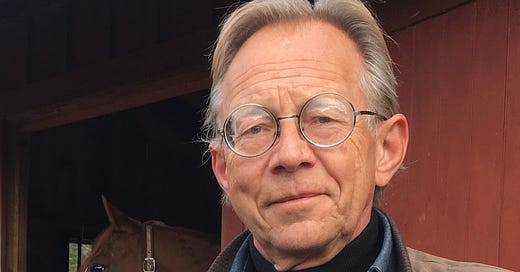It’s been said in the world of business that people only buy two things: Good feelings and solutions to problems. In medicine, the single most important factor that brings patients through our doors isn’t a “toward” kind of desire, but an “away” one – away from feeling bad.
More specifically, it is pain and fear that most often cause patients to call and ask for an appointment. They hopefully leave with good feelings and solutions to their problems, but that only happens when we have the knowledge, resources and, perhaps most important, the time to give them the relief they seek from us.
I am not considering the purely administrative functions we perform, but even some of them are more “away” desires, like patients needing a work excuse due to illness out of fear of otherwise losing their jobs. Even getting a flu shot or a physical is often rooted in pure fear of illness.
So, how often do we have the knowledge, resources and time to help our patients escape their torments?
And also, forbid the thought, how often is this relief of suffering in the broadest sense the overarching principle that guides each doctor and each healthcare organization?
In my random readings the other night I came across an article, almost a manifesto, by the British National Health Service from 2011. The document was titled “A Better NHS” and I am quoting the part about patients’ pain and the profound responsibility of the treating physician:
“The commonest reason for visiting a GP is ‘fear’.
Fear that the lump is cancer, that the chest pain is another heart attack, the headache a stroke, like the one that tragically disabled Maureen. Fear that I may die before my children grow up, fear that I may lose my sight, my balance or my mind. Fear that I cannot cope, that I am a failure or that I will be judged unfairly and blamed for my suffering. To be a patient is to be unfamiliar with oneself, to inhabit an unfamiliar shell, barely in control and in need of help. The world and our relationships are radically altered when we are patients.
What an extraordinary job we do. Grounded in a therapeutic relationship, everything we do depends on trust. What an extraordinary responsiblity to be charged with caring for people when they are at their most vulnerable and most easily exploited.
Because of this it is absolutely vital that we are not led into temptation. Just as monks and nuns need to be protected from the distractions of the world so that they can dedicate themselves to God, so we need to be protected from mammon and the perverse incentives of the market-place, so that we can dedicate ourselves to our vocation and our patients, and be the doctor that they need, not the doctor the market makes us.”
This was a call, or a prayer, not to be led into temptation by greed. As employed physicians, which is what most of us primary care physicians now are in the US, our temptations to profit from our patients’ fear, misfortune and illness are limited. Here and now, the temptation we all face is maybe not one of the deadly sins, but it is gaining traction:
Distraction from what really matters is perhaps our biggest temptation and a poison we are constantly exposed to. We let our focus wander away from the patient and toward the clock, away from the therapeutic moment and toward the measurable quality indicators. Even when we embark on practice redesigns to become more patient focused, the certification process itself becomes a distraction from the work we set out to improve.
This week I saw two new patients, both of them with shortness of breath and heart palpitations, both fearful that something was dreadfully wrong. Each one ran over their allotted thirty minutes (my longest appointment type, reserved for new patients and hospital followups) by a good ten minutes, but each one left reassured, one with a clean bill of health, the other with reassurance that only two tests were needed to confirm my clinical assessment that there was nothing serious. Both women gave me a firm handshake, repeated by their largely silent accompanying husbands, both of whom silently mouthed the words “thank you”.
I laid it on fairly thick, I invoked what I sometimes refer to as the source of my calling, and I drew on my experience and they gray hair I have earned recently, and my ability to use simple language and everyday analogies to dispel the mystery of how our bodies work.
Instead of feeling pressured or overwhelmed by these encounters, I felt satisfied and energized. I easily caught up with my schedule and I didn’t give the daily distractions much thought.
I had done some real Doctoring. I had mitigated the fears of two fellow human beings.



